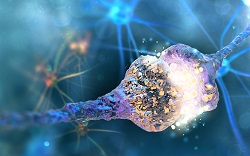Stem cells transformed to make dopamine
Parkinson's disease is typified by a pronounced tremor of the extremities, usually the hands or lips. It is the source of difficulty of movement and exacts a high cost in terms of health care. It is as a result of the progressive destruction of dopamine producing cells in an area in the midbrain, the substantia nigra. Dopamine is a neurotransmitter and has many functions including that involved in motor activity, hence the array of symptoms that constitute Parkinson's disease. Accordingly, the aim of the EC project DANCE was to develop dopaminergic (DA) neural cell lines for transplants. A multidisciplinary consortium investigated DA cell development from human neural precursor cells. As part of this line of research, workers at the Molecular Neurobiology Lab in Stockholm researched some of the molecular pathways responsible for the differentiation of these dopamine-producing cells. Their focus was the role of a family of glycoproteins, the Wnts. The Wnts, first investigated in the fruit fly, have a wide range of functions and are present throughout the animal kingdom. In humans, they are responsible for physiological processes including cell division and differentiation, the key to this piece of research. The researchers investigated several members of this family and they found that they are key regulators of proliferation and differentiation of the dopaminergic (DA) precursors. Moreover, they found evidence that individual Wnts play very different roles. In particular, Wnt-5a could directly stimulate the differentiation of stem cells into the DA neurons. Parkinson's disease affects more than a million people in Europe alone. Using Wnt-5a as part of the molecular cocktail then, efficient production of DA neurons may be achieved for the effective treatment of this distressing condition.







